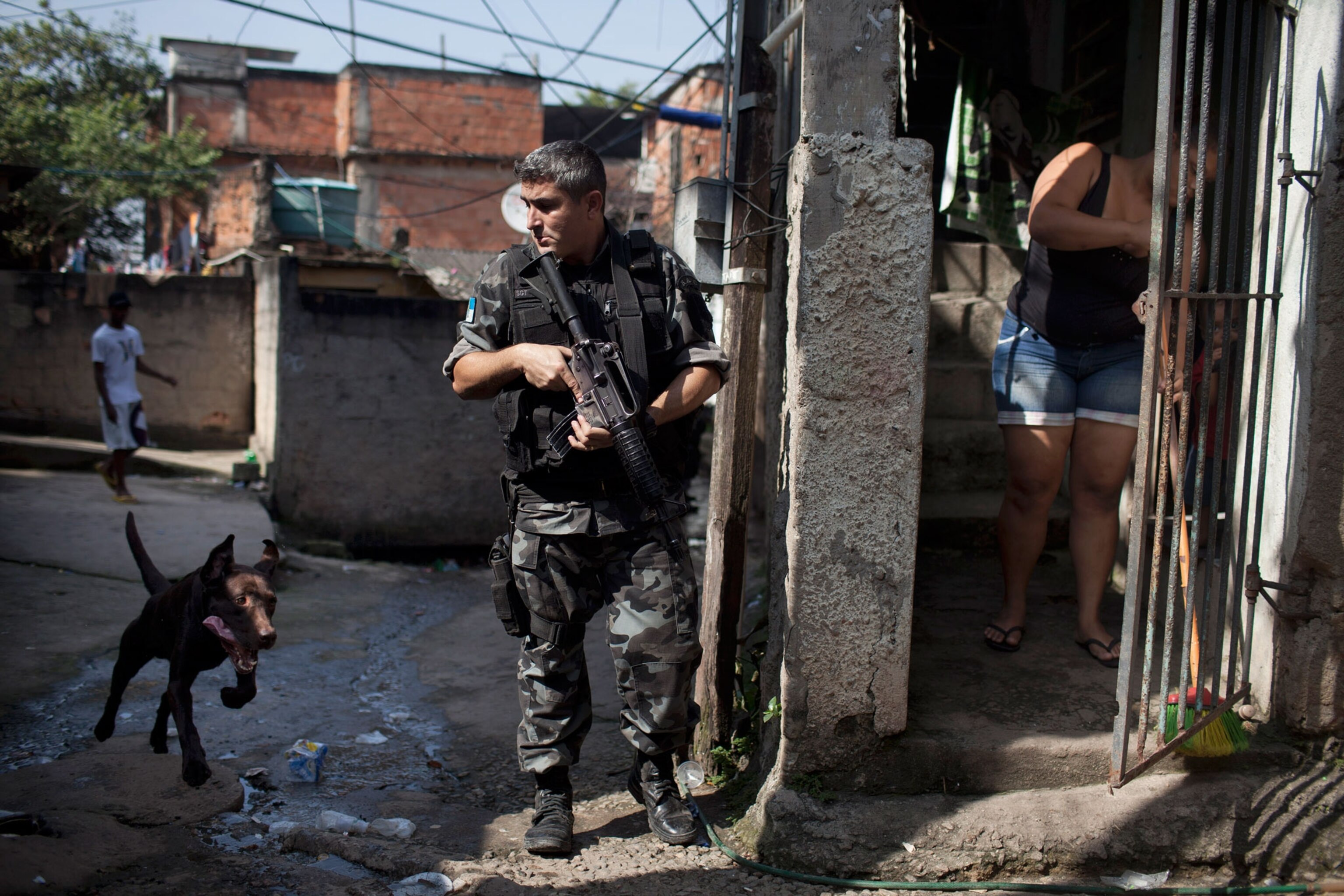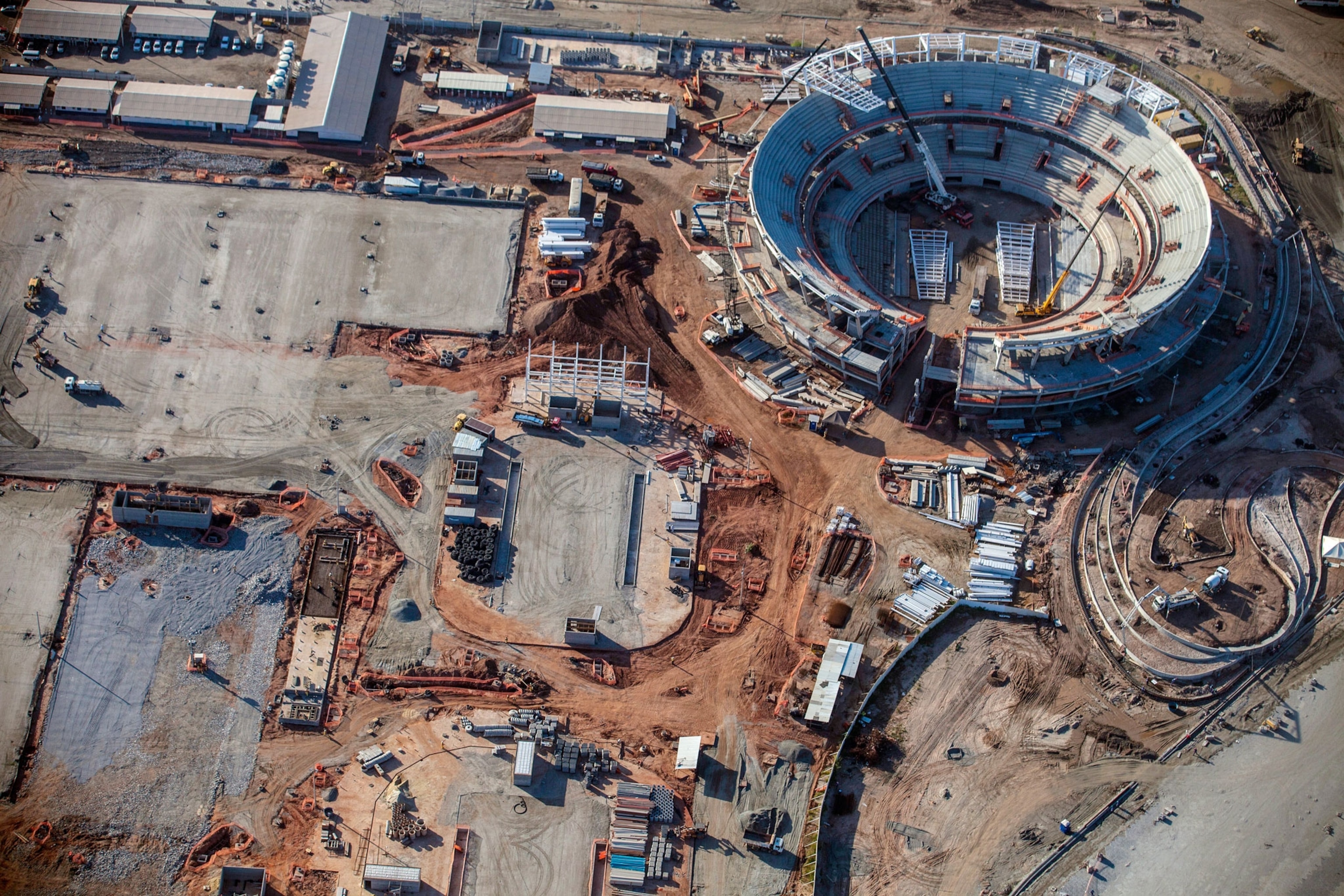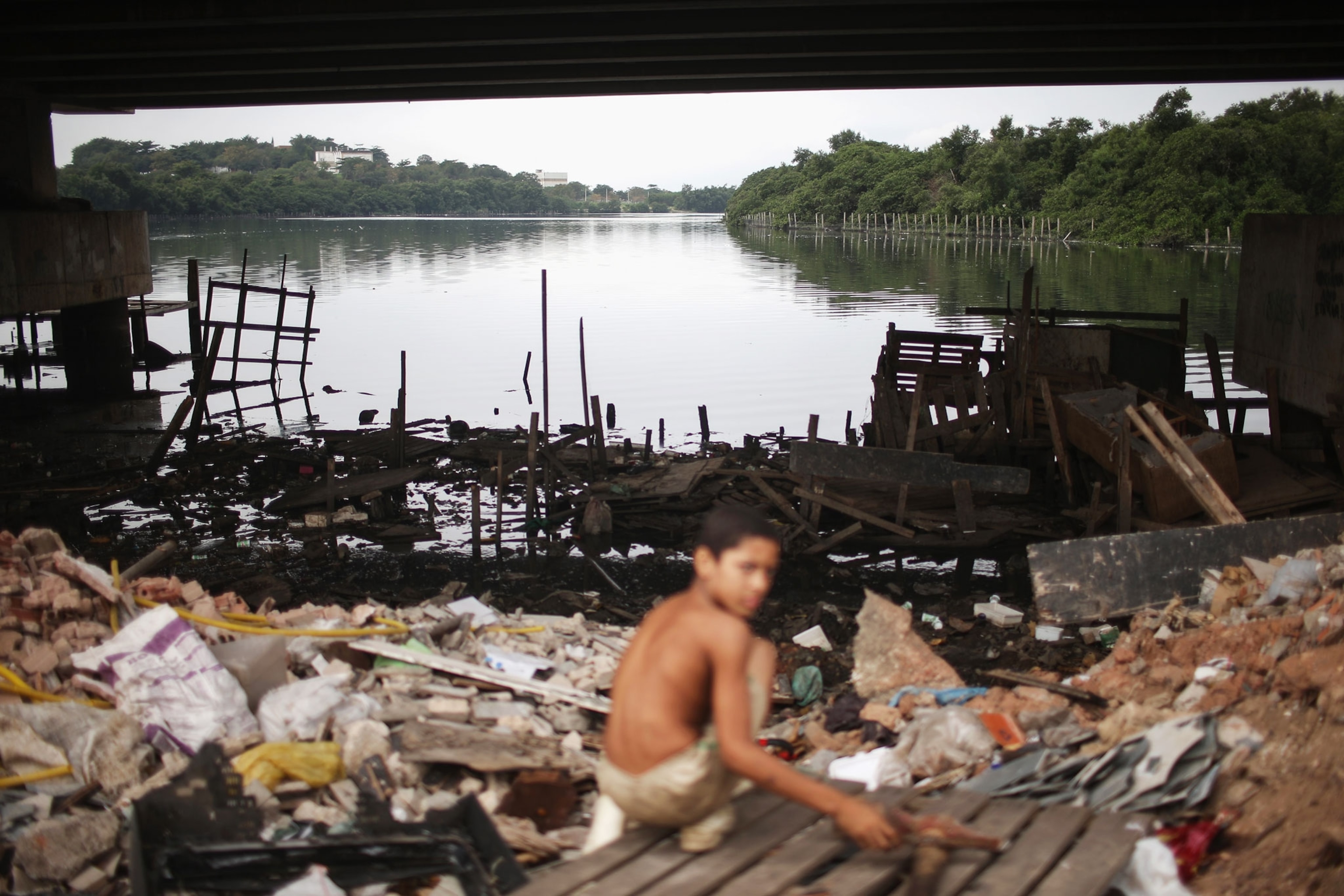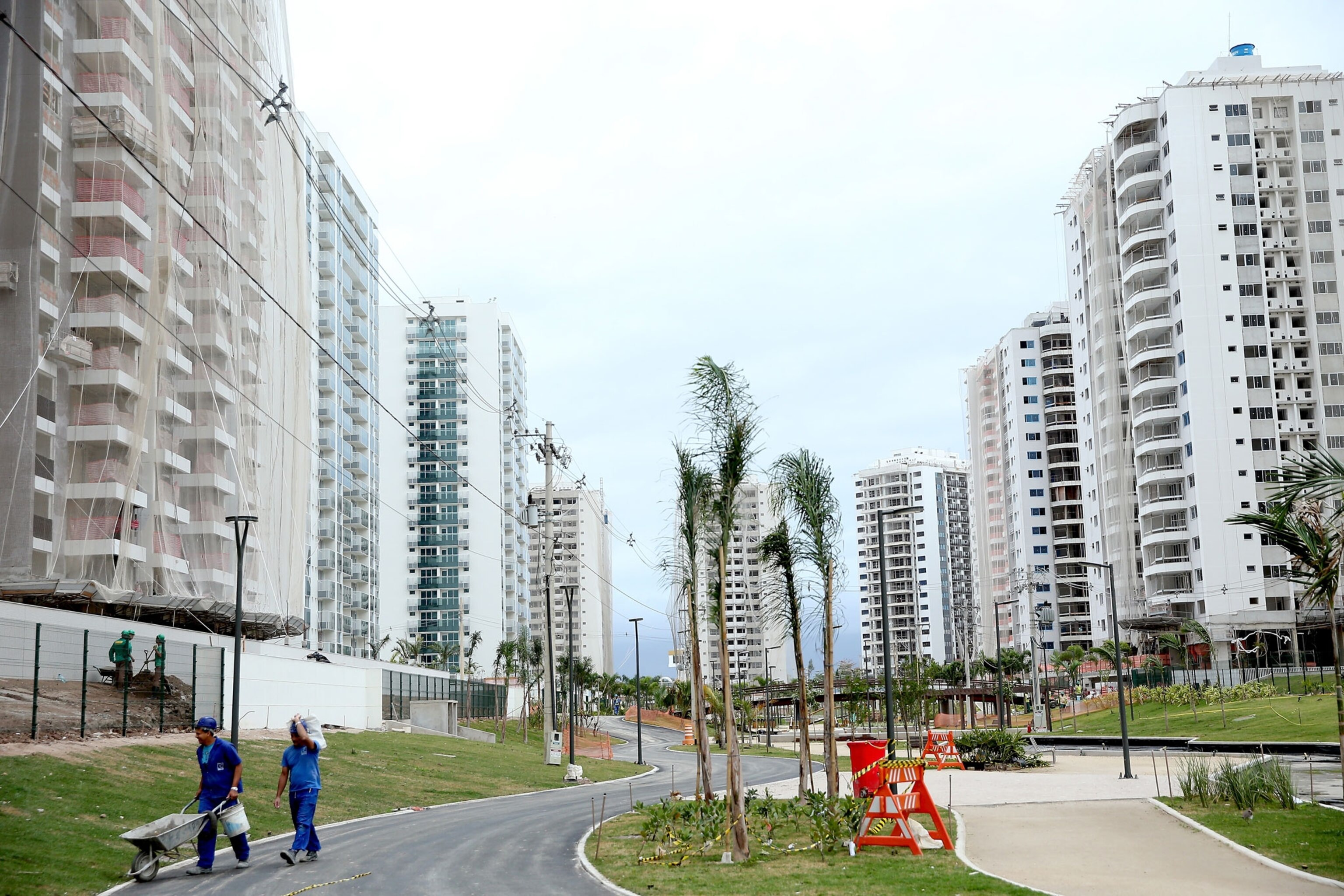
Will the Olympics Make Things Better or Worse for Rio?
The 2016 summer Olympics in Brazil could make the rich richer and the poor poorer, an author says, but even so it should be a good party.
As the daughter of a Brazilian petroleum engineer, Juliana Barbassa, author of Dancing With The Devil In The City of God, spent her childhood as an oil brat, following her father around the world from job to job. As a journalist, she followed the same pattern, living in places as varied as Iraq, Malta, and Texas. But she never lost touch with her home country, which had emerged from decades of military dictatorship and economic underdevelopment to become one of the world’s superpowers.
Winning the right to host the World Cup, then the Olympics, signalled international validation of Brazil’s new status. So, when Barbassa was offered a job as a correspondent for the Associated Press back in Rio de Janeiro, she jumped at the chance, only to find the city she had returned to was anything but predictable.
Talking from Rhode Island while on vacation, she describes how women helped create Brazil’s new economic power; how jeitinho is the back-door Brazilian way of getting things done; and how the pollution of Rio’s waterways is the biggest challenge facing the city before the Olympics.
The city you returned to in 2010 was plagued by violence. Talk about the Red Command and its roots in Rio’s history.
One of the many things that had been seen as promising in Rio was the reduction in street violence that had been such a marker of the city. You felt that every day people were more free to walk around. But when I arrived, I found this situation of escalating urban chaos. There were drive-by robberies in the street: young men on motorcycles would block traffic, rob a bunch of cars that were backed up, set vehicles and buses on fire.
Jeitinho is our way of doing things.... It’s a way of bending rules without breaking them; of accepting or offering a bribe without offending.Juliana Barbassa
All this caught me by surprise. So I followed events as the police tried to come to grips with what was happening. Eventually, there was a press conference where they said the violence was coming from a drug-dealing gang called the Comando Vermelho or Red Command, the gang with the biggest influence in Rio since the 1980s. They controlled these favela communities, basically preventing police from entering. A new police initiative aimed at taking back the favelas was impacting this gang and they had begun to push back by spreading panic in the city.

I was there when the police made the difficult decision to go after the gang in their headquarters, a complex of favelas called the Complexo do Alemao or German Complex. It’s a series of connected communities of nearly 100,000 people that are built hodgepodge: narrow, winding alleys, tiny homes one on top of the other.
The Red Command controlled this community and could go out, strike in the city, then melt back. They were basically untouchable. So the police decided to go in and take it back, something that had not happened in decades. To do this, required a military operation. The gang had spent years building fortifications and stockpiling weapons and ammunition. The police had to use tanks and other military grade weaponry that I had last seen in the Iraq war. It was absolutely shocking: a military operation in a city that ostensibly was not at war.
Rio is in the spotlight because of the World Cup and the Olympics. Describe the scale of the transformations taking place in the city?
It touches every aspect of life. For example, a little over a month after it was awarded the Olympic Games, the government published a list of 119 favela communities that would be razed. This affects hundreds of thousands people. It’s an unprecedented reformatting of the face of the city.
Another huge area of transformation, which had the potential to be very positive, is the environment. A lot of the Olympic events are going to happen on the water, on a big lake in the middle of Rio’s wealthy Southside and in Guanabara Bay.
These bodies of water have historically been Rio’s toilet. Up until now, one out of three times you flush a toilet in Rio, the contents of your toilet end up in the bay, untreated and untouched in any way. In order to host these events something needed to be done very quickly. Again, it has the potential to be a very positive thing: all these are things that could really improve life for people in Rio. But the vested interests pushing these plans through meant that it’s not happening that way.

Population control has been key to Brazil’s economic rise. How has the role of women changed in the last few decades?
This was also a real surprise for me. It is something I’d noticed in my own family. My grandmother had something like fourteen brothers and sister. They in turn had six to seven children. My parents and aunts and uncles had from zero to three. Among my cousins and I, we have even fewer. So a change that took many generations in industrialized countries happened very quickly in Brazil. Women are still disempowered relative to men. But women managed to reduce the number of children they had and this changed the economic potential of the country and women’s lives.
The concept of jeitinho, bending rules, is crucial to understanding Brazil. Explain what it means and how it affects daily life.
Jeitinho is our way of doing things, of making things happen, whether it’s starting a business or getting rid of a traffic fine. It’s a way of bending rules without breaking them; of accepting or offering a bribe without offending; and getting around legal or bureaucratic obstacles. It’s become an essential part of operating in a country that is mired in bureaucracy. The legacy of bureaucracy is something Brazil has been burdened with since the Portuguese colonized it.
When I looked at big infrastructure projects, what I saw was that the people who had always benefitted in Brazil—the wealthy parts of town, the big development companies—were the ones who would benefit from what was being put in place.Juliana Barbassa

It is one of the countries in which it’s hardest to do things like start a business or pay taxes. The rules are obstacles are absolutely stultifying. So, Brazilians have found a way of getting around it. Unfortunately this means that things happen or don’t happen on the basis of personal relations. Whether you’re starting a business or renting an apartment, everything depends on whom you know, what kind of personal connection you can establish with them and what, together, you can work out to make this thing happen.
You ask two questions about the transformation of Rio caused by the World Cup and Olympics: What city was being created? Who stood to gain and who stood to lose? Have you found the answers?
Yes, I did. It was an interesting process to cover as a journalist, but hard to cover as a person who cares about the city. The change I was seeing was superficial. The face of the city was changing but not the faces of the people who gained from these processes. Time and time again, when I looked at big infrastructure projects, what I saw was that the people who had always benefitted in Brazil—the wealthy parts of town, the big development companies—were the ones who would benefit from what was being put in place.
For example, Rio has a huge problem with traffic. A lot of people in Rio have three or four hour commutes every day. Imagine what that does to productivity and people’s quality of life! The north part of the city is in dire need of new transportation options but, instead, what did we get with both the World Cup and the Olympics? Several new rapid bus transit lines, all connecting to the west side of the city: a landscape of affluent, gated communities and malls, with 16-lane highways.

The main Olympic area, where the athletes’ village is going to be, is also on the west side, where the big development companies are already falling all over each other to put their money. It could have been done in a way to benefit the city’s population as a whole. Instead, the Olympic plans were laid out in such a way that the people who were already wealthy became wealthier and the people who were already on the margins, like the favelas, were pushed further to the margins.
We can’t talk about Rio without discussing football. Describe what the national teams known as selecaos mean to Brazil – and the effect on the nation of Germany’s seven to one victory in the semi-final of last year’s World Cup?
A well-known Brazilian sports writer once said, “The team is the nation in cleats.” Football, and the selecao, the national team, have always been Brazil’s way of feeling good about itself. At times when there was nothing else we could be proud of, we could be proud of our national team. During the worst of the military years, the selecao showed the nation that there was something we could do that was beautiful, unique and particularly Brazilian, at a time when the country was living through some difficult, violent times. It was a face we could always put forward.
By hosting the World Cup in 2014, Brazil was making good on its promise to be the country of the future. The final, at the Maracana was meant to be Brazil’s moment of glory. The days leading up to it had this almost religious feeling. “Do you think Brazil can make it?” “If we all do our part.” People were praying or making vows. It was as if, if we just believed enough, we could make this happen.
Rio will be ready, I have no doubt. If you throw enough money and stoke the fires enough, you can make anything happen. The real question is, at what cost?Juliana Barbassa
So the disbelief, when goal after goal went in, against Germany was something that was taken very personally. People started to cry, or walked out of the room, and refused to watch the end of the game. If it had been a boxing match it would have been stopped. You wouldn’t have let the punching go on and on. It wasn’t just a defeat. The team fell apart before our very eyes.
Recently, the mayor of Rio, Eduardo Paes, insisted that the Olympic venues would be completed “on budget and on time.” Is this just a politician’s hype? Or will Rio be ready for the Games in August 2016?
Rio will be ready, I have no doubt. If you throw enough money and stoke the fires enough, you can make anything happen. The real question is, at what cost? Not just the financial cost, but what are we giving up in order to have this?
For the Olympics, the military police have been given even more armaments to secure the streets, which is going to be left for us once the games are gone. What is this going to mean in a place where the police are not accountable and are known to be violent? Same with the transportation infrastructure. What will it mean for Rio in ten or twenty years when we’ve got roads and infrastructure that only benefit one part of the city and not another?
Brazilians know how to host a party like nobody else. But the question is, what does it mean for Rio and other cities that are going to welcome games like this?
Simon Worrall curates Book Talk. Follow him on Twitter or at simonworrallauthor.com.